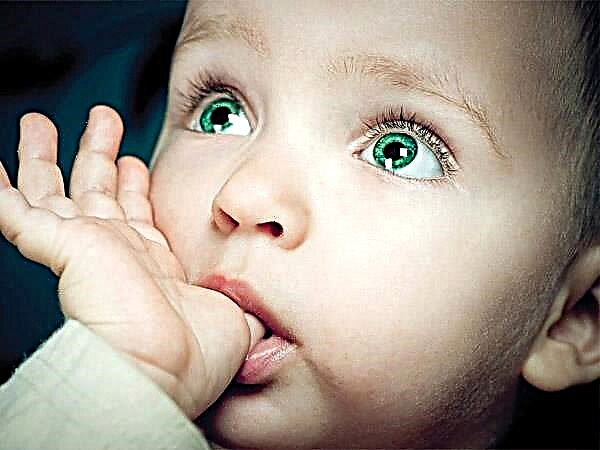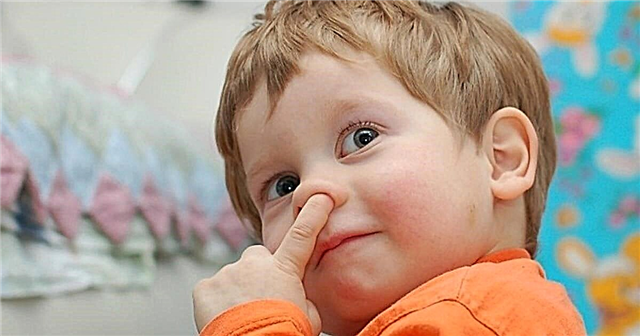
Dizziness can be a symptom of a wide variety of disorders in the work of the child's body, and therefore the child's complaints that he is dizzy cannot be ignored. At best, episodic attacks can be a sign of vertigo - dizziness with vigorous growth. In all other cases doctor's help is needed.

What is it and when is it safe?
Vertigo is an illusion of rotation. The child feels that he is flying, moving forward or backward, but his body is in a plane in a static state. An attack of dizziness is always characterized by disturbances in the flow of sensory information. The child receives inaccurate information from the organs of sight, hearing, incorrect signals from the vestibular apparatus. With an attack, the child finds it difficult to orientate in space.
Maintaining balance and awareness of one's position in space is ensured by the solidary work of the vestibular apparatus, the organs of vision, the tactile system, and all this work is provided by the cortex of the cerebral hemispheres and subcortical centers. All of this work is regulated both at the hormonal level and at the level of enzymes that help transmit signals between the systems involved.
Medicine knows 2 types of vertigo - vestibular and non-systemic. An attack of imbalance due to a psychogenic state is called non-systemic. It is considered physiological and can, for quite natural reasons, be observed after a long ride on a merry-go-round, with a sharp change in speed, with a long observation of something that is moving quickly.
The ability of a child to experience such dizziness was presented to mothers of all times and peoples by the rituals of motion sickness of children - the effect of drowsiness arises precisely because of the physiological dizziness that a child experiences when the mother shakes in her arms.

Systemic disorder is caused by damage to the vestibular apparatus and has more complex mechanisms and manifestations. With it, the child may experience seizures at rest, sometimes it is so strong that the child cannot maintain balance, falls, faints occur. In children, physiological dizziness is most common, which often coincides with periods of active growth of the child - these are age periods of 3-4 years, 6 years, 7-8 years.
At school age, psychogenic dizziness is often encountered, which are the result of severe stress, for example, from increased academic load, with excitement before the exam. Such vertigo is more common in children. at 10-11 years of age and older. During adolescence, during the period of the most active puberty, at the age of 15-16, physiological dizziness may be associated with an increase in the amount of circulating blood and changes in hormonal levels... Physiological dizziness is considered natural, and if it occurs infrequently, the child usually does not need treatment.
If attacks occur frequently, strongly, you should definitely visit a doctor, since the reasons may not be so harmless.

Pathological causes and symptoms
In about 40-50% of cases, children's dizziness is not physiological; doctors establish its systemic nature. The following can lead to damage to the vestibular apparatus:
- toxic lesions of the brain;
- traumatic changes in the central nervous system;
- degenerative changes in the brain;
- vascular diseases associated with impaired blood supply to the brain;
- Meniere's disease and other hearing disorders;
- benign paroxysmal positional vertigo;
- the child has a neuroma;
- brain tumors.


The most common reason is considered paroxysmal positional vertigo... It happens due to the formation of calcium carbonate aggregates in the channels, as a result of which the receptors of the vestibular apparatus are irritated. Symptoms of such dizziness are quite typical - the attacks are short-lived, last about a minute, they often occur even with just moving the head position, accompanied by nausea and vomiting. But tinnitus never occurs.
If neuronitis is the cause, the attacks can last from an hour to several days. And all this time, the child has severe headaches, problems with balance. This form of violation of the vestibular apparatus usually develops after infections that the child has suffered hard - after the flu, chickenpox, measles. But the child's consciousness does not suffer, the temperature is gone, hearing and vision are preserved in full.
If a head injury is the cause, dizziness appears immediately after or shortly thereafter. The child is nauseous, but vomiting is not always the case, the child may complain of constant dizziness and weakness, or experience only short-term seizures while standing or lying down, with a change in body position. Seizures that are prone to aggravation indicate toxic damage. Light dizziness is replaced by strong, attacks are becoming more frequent. Coordination of movements is often impaired - the child cannot perform some simple action that he previously coped well with, for example, deliberately take a pencil off the table on the first try.


In case of problems with the organs of hearing, the head does not spin by itself, this condition is always accompanied by the occurrence of noise in the ears, ringing. Hearing decreases. Vomiting and diarrhea do not occur with this type of dizziness. Attacks can last from a couple of minutes to a day. The child is often unable to maintain balance.
Non-systemic pathological dizziness may be associated with damage to the cerebellum, taking certain medications. In this case, the child at the time of the attack suffers from impaired attention, and after the attack, he has a strong need to sleep for a long time. Sometimes dizziness is a companion of phobic disorders - with strong fear, the child begins to experience a panic attack, the signs of which sometimes include imbalance.

What to do?
If attacks of dizziness in a child recur frequently, if there have been cases of loss of consciousness, falls, nausea and vomiting, you should first of all find out whether the dizziness was physiological or pathological. Only a doctor can do this, self-diagnosis is completely inappropriate here. And the most important thing to do is find out Does the child really suffer from dizziness or does it only seem so to mom.
The fact is that people often mistakenly call dizziness something else, for example, blurred eyes, a headache attack. Therefore, it is important for the doctor to try to understand what the child's true feelings are. You should consult a pediatric neurologist. He will order an examination, which will include coordination tests, MRI, if necessary, to examine the condition of the cranial nerves. An examination of the cervical spine may also be shown - X-ray, CT.
Such methods allow you to immediately determine whether there are neoplasms, signs of demyelization, any other changes in brain structures. If hearing impairment is suspected, a audiogram. Often, children are assigned a passage electroencephalogram of the brain.

After identifying the true causes, the doctor prescribes the appropriate treatment... If the blood supply to the brain is disrupted, venotonic drugs, antiaggregators, and, if necessary, anticonvulsants will be prescribed. With Meniere's disease, a diet without salt is recommended, taking diuretics, and if the effect cannot be achieved with conservative methods, surgical treatment will be prescribed. There is a different approach to each root cause, and appropriate treatment will be recommended first.
Psychotherapy plays an important role in the treatment of childhood vertigo, so it is often recommended to start seeing a psychotherapist. The child is also prescribed physiotherapy exercises, where, under the supervision of an experienced specialist, the child will be able to master a steady gait and learn to cope with episodes of imbalance if they happen again.
Almost always an attack of true dizziness is accompanied by a feeling of strong fear, fright, this is how the human psyche works - when you lose understanding where you are in space, horror arises. Therefore, it is very important for children to organize classes with elements of game therapy in the course of treatment.
With the right approach, even in the case of pathological dizziness, medical forecasts are assessed as quite favorable.

The opinion of Dr. Komarovsky
In addition to being examined by the relevant doctors, the famous pediatrician Yevgeny Komarovsky recommends to parents it is good to master the rules of first aid to a child if an attack of dizziness is associated with loss of consciousness, fainting or fainting. He claims that moms and dads should be more attentiveif the child complains that he is dizzy. Fainting is generally not sudden, they are always preceded by something, and this "something" parents must learn to recognize both day and night, and at any other time of the day. Most often, before fainting in children, the skin turns pale and cold sweats appear.
If the child is lethargic and lacks coordination, it is necessary to lay him down, as a sudden fall can threaten to receive serious injuries. And the child himself, if he is at a conscious age, is important to teach - as soon as a strong weakness appears, one should lie down and lie down calmly. Parents should make sure that the baby lies on the back, tilts his head back slightly, you can put a rolled blanket or pillow under your feet, you need to unbutton clothes that can interfere with free breathing. The room needs open the window to provide fresh air.

If after 3 minutes the attack does not go away, you need to put the child on one side to prevent saliva or vomiting from entering the lungs. At the time of an attack of severe dizziness and fainting, parents should not fuss and scream, panic, slap the child on the cheeks (as the heroes of television series do effectively).
Evgeny Komarovsky and ammonia do not advise - if the child suddenly throws his head back from the pungent smell, he can damage the cervical vertebrae or the back of the head. Do not shake the child like a pear, pour cold water on him. What pills to give to prevent dizziness, what to do next, should be decided only by the doctor, and self-medication is unacceptable, believes Komarovsky.
Regardless of when the head is spinning, there is a lack of coordination - in the morning or in the evening, at school or at home, it is imperative to examine the child for the true cause of this condition.




